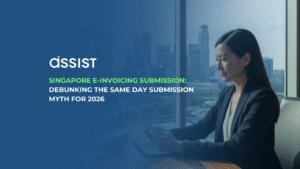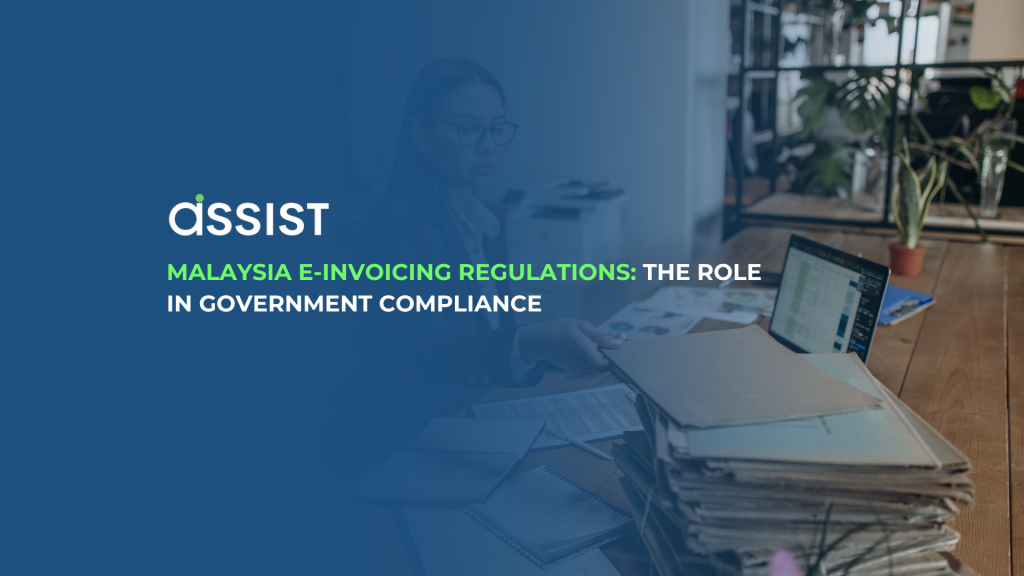
Singapore E-Invoicing Submission: Debunking the Same Day Submission Myth for 2026
In Singapore, there is no legal requirement to submit...

Malaysia’s digital economy is evolving at an unprecedented pace, driven by increasing internet penetration, widespread mobile usage, and the rapid growth of e-commerce. Recognizing this shift, the government has introduced regulatory measures to enhance efficiency and transparency, with e-invoicing being a key initiative aimed at streamlining tax reporting and compliance. By mandating e-invoicing, tax authorities seek to create a seamless, automated, and fraud-resistant invoicing system. But how does e-invoicing fit into the larger regulatory framework? What are the benefits, and how can businesses ensure compliance? Let’s explore these in detail.
Table of Contents
ToggleMalaysia’s digital economy is fueled by multiple factors:
E-commerce Boom: Platforms like Shopee and Lazada have changed consumer behavior.
5G Expansion: Faster internet enables real-time transactions and cloud-based accounting.
Government Digital Initiatives: Policies like MyDIGITAL aim to transform Malaysia into a high-income digital economy.
The Malaysia Digital Economy Blueprint sets ambitious targets for digital adoption across industries. SMEs, which constitute 97% of Malaysian businesses, are at the heart of this transformation. However, for digitalization to be truly effective, invoicing must also go digital—hence the push for e-invoicing.
E-invoicing refers to the electronic generation, exchange, and storage of invoices between buyers and sellers. Unlike traditional invoices, which rely on paper or PDFs, e-invoices are structured digital documents processed automatically by accounting and tax systems.

The Inland Revenue Board of Malaysia (LHDN) has introduced MyInvois, an e-invoicing system built on the PEPPOL framework. This initiative ensures:
✅ Real-time tax compliance – Transactions are reported instantly.
✅ Reduced tax evasion – Digital trails make fraud detection easier.
✅ Faster transactions – Businesses get paid quicker with automated invoice processing.
📌 Reduced Administrative Costs – No printing, mailing, or manual data entry.
📌 Faster Payments – Automated invoice matching reduces delays.
📌 Fewer Errors – Digital invoices eliminate manual input mistakes.
✔ Enhanced Tax Collection – Greater transparency reduces underreporting.
✔ Combat Fraud – A centralized system prevents fake invoices.
✔ Data-Driven Decision Making – Authorities gain real-time insights into business activities.
Malaysia is rolling out e-invoicing in phases based on annual turnover:
| Business Turnover | Implementation Deadline |
|---|---|
| Above RM100 million | August 1, 2024 |
| RM25 million – RM100 million | January 1, 2025 |
| RM500,000 – RM25 million | July 1, 2025 |
| RM150,000 – RM500,000 | January 1, 2026 |
| Below RM150,000 | Exempt (for now) |
These phased deadlines provide businesses time to prepare for compliance with Malaysia’s e-invoicing framework.
1️⃣ Register for MyInvois via LHDN’s portal
2️⃣ Integrate an e-invoicing solution that meets PEPPOL standards
3️⃣ Ensure seamless connectivity with existing accounting software
4️⃣ Train finance teams on new invoicing procedures
Italy: Mandatory e-invoicing since 2019, leading to a 2.5% increase in tax revenue.
India: Phased implementation, starting with large corporations.
Singapore: PEPPOL-based e-invoicing, ensuring cross-border compatibility.
LHDN envisions a fully digital tax ecosystem by 2026, with AI-driven compliance monitoring and automated business tax filings.
50% reduction in compliance costs for businesses
30% increase in tax efficiency
Boost in Malaysia’s ease of doing business ranking
E-invoicing is not just a regulatory requirement—it’s an opportunity for businesses to streamline operations, cut costs, and enhance compliance. The transition may seem daunting, but with the right tools, it becomes effortless.
🚀 Why wait? Get ahead of the curve with Assist.biz—a MyInvois-ready e-invoicing solution that simplifies compliance, automates invoicing, and integrates seamlessly with your existing accounting software.
🔗 Sign up now at Assist.biz and future-proof your business!
Yes, e-invoicing is being implemented in phases based on business turnover, starting in 2024.
Non-compliance may lead to penalties and increased audit scrutiny from LHDN.
Yes, businesses with turnover above RM150,000 must comply by 2026. Smaller businesses are currently exempt.
Using an LHDN-approved provider like Assist.biz ensures seamless integration.
In Singapore, there is no legal requirement to submit...
To prepare for Singapore’s e-invoice implementation, taxpayers must align with...
Pelaksanaan Invois Kendiri di Singapura memberi kuasa kepada pembeli untuk...
In essence, the issuance of a self-billed invoice in...